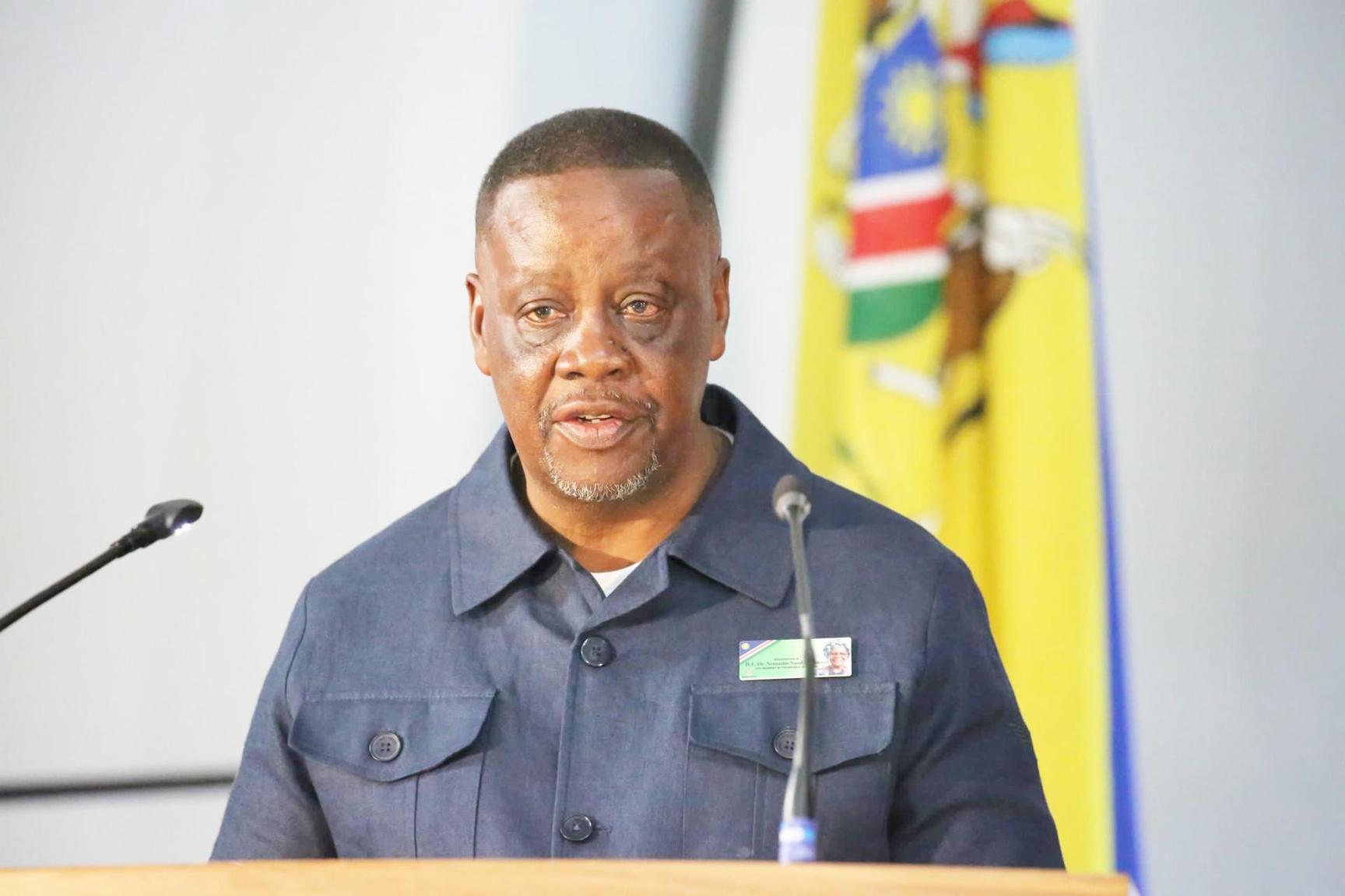OTNIEL HEMBAPU
Africa-Press – Namibia. New Era (OH) Senior journalist Otniel Hembapu recently sat down with Omaheke governor Pijoo Nganate (PN), who spoke about his reappointment, reflected on his last term as regional head, and also unpacked a range of issues currently facing the region, including the fight against malnutrition, youth unemployment and alleged corruption and tribal infights.
OH: You were recently reappointed as Omaheke governor for another term, which marks a significant and historic turning point in the country’s politics, especially for the region. How did you welcome your reappointment, and what do you think impressed President Netumbo Nandi-Ndaitwah the most about your leadership qualities?
PN:I received the reappointment with deep humility and gratitude. It is a profound honour to be entrusted once again with the responsibility of leading the Omaheke region. I believe this decision reflects the confidence that Her Excellency, President Netumbo Nandi-Ndaitwah, has in the collective work we have done in this region. We made deliberate efforts to be present where our people are, to listen, and to act.
I believe what resonated with the President was our commitment to bridging the gap between government and the people. The continuity in leadership gives us the opportunity to deepen impact, strengthen existing projects, and accelerate development efforts.
OH: You have been very vocal about putting special emphasis on people-centred empowerment, service delivery and prompt leadership. In your renewed term as governor, particularly against challenges such as malnutrition, youth unemployment and many other social inequalities, how do you plan on navigating your way to achieve the envisioned prosperity for the people of Omaheke?
PN: Our focus in this new term is to institutionalise leadership that listens and acts. We intend to revive the Governor’s Community Service Day, which will ensure regular physical presence and engagement across all constituencies. We will also introduce suggestion and feedback boxes in every constituency office to allow residents to raise concerns and ideas anonymously.
In addition, we will strengthen collaboration with local leaders to monitor service delivery and ensure follow-through. The objective is to make our leadership more united, responsive and action oriented.
OH: You are one of the very few politicians who survived the ‘chopping block’, especially at a time when many thought you would not be retained due to perceived disunity amongst the region’s political and traditional leaders. Looking back on your last term, what would you say were your most notable achievements, and what were some of the challenges?
PN: The region has experienced both encouraging progress and persistent challenges. One of our most notable achievements was the significant reduction in malnutrition, which dropped by over 20%. This was made possible through collaborative efforts, including the establishment of soup kitchens, community feeding schemes, and targeted support for vulnerable households.
However, challenges remain. Poverty, food insecurity, and limited access to services are still widespread, particularly in rural constituencies. Infrastructure backlogs, youth unemployment, and land access issues continue to demand urgent attention. These realities have only strengthened our resolve to continue finding practical solutions.
OH: Speaking of challenges, Omaheke region has in recent years been heavily engulfed with allegations of tribalist infights, corruption, nepotism and cronyism. In fact, many of the region’s renowned political and traditional leaders have labelled you as a tribalist and corrupt. How would you respond to such serious assertions?
PN: While I respect the right of every citizen to raise concerns, I strongly reject the accusations of tribalism or corruption. I have worked hard to lead fairly and transparently, ensuring that every constituency, regardless of ethnic or political affiliation, is served. These claims do not deter me. My focus remains on the work. I may not have solved every problem, but I have remained committed and present. I wake up each day with one goal, and that is to serve the people of Omaheke to the best of my ability. The progress we have made is visible, and I believe it speaks for itself. Again, I would like to call on all leaders and stakeholders in Omaheke region, to do away with working in silos and be unified in our pursuit to serve the people of Omaheke region.
OH: Lastly, how would you like to be remembered by the residents of Omaheke and the people of Namibia when your term ends, and which projects would you like to leave behind as part of your legacy or gift to the region?
PN: I would like to be remembered as a governor who led with heart, humility, and consistency. A leader who stayed close to the people, listened, and acted in their best interest. My greatest wish is to leave behind a fully functional Agri-Hub in Omaheke, designed to create employment, enhance food production, and support self-sufficiency. I also want to see systems in place that respond to the needs of homeless children, and lasting progress in our fight against hunger and malnutrition. These are the legacies I hope to leave behind.
OH: Thank you so much for talking to us Honourable Nganate.
PN: You are more than welcome; my door is always open.
Source: neweralive
For More News And Analysis About Namibia Follow Africa-Press






